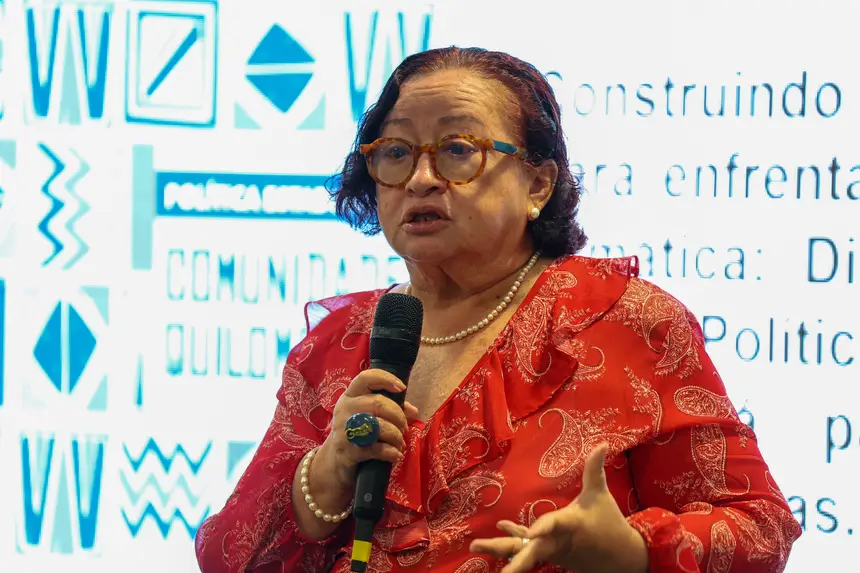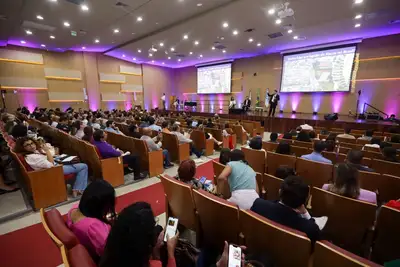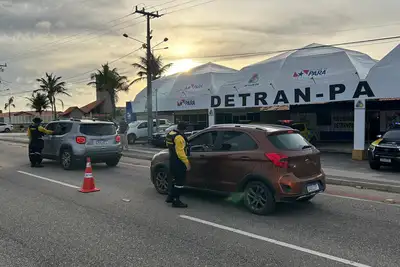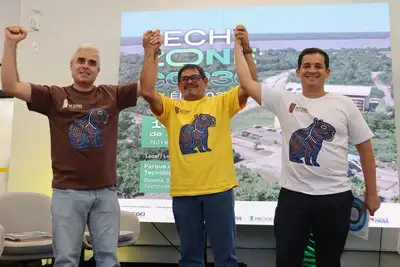Seirdh brings the debate on inclusive policies and climate justice for quilombola communities to COP30
The booklet launched by the government of Pará has already reached over a thousand distributed copies, becoming a reference in the integration of racial equality, traditional knowledge, and confronting the climate crisis

The State Secretariat for Racial Equality and Human Rights of Pará (Seirdh) began its participation in COP30 this Friday (14), with the panel "Building Inclusive Policies to Address the Impacts of the Climate Crisis," at the Pará Pavilion, in the Green Zone. The activity highlighted the importance of the Public Policy Booklet for Quilombola Communities, published in January 2025.
The material was developed from direct dialogue with quilombola leaders and associations, consolidating public policies and information about the rights of the quilombola population in the State. More than a thousand copies have already been distributed in municipalities such as Cametá, Abaetetuba, Moju, Baião, Mocajuba, and Ourém.
The discussion circle included the participation of the Seirdh secretary, Edilza Fontes; the manager of Promotion of Quilombola Rights, Valdinei Gomes; and the representative of the Coordination of Associations of Remnant Quilombola Communities of Pará (Malungu), Marcelo Corrêa.

According to Marcelo Corrêa, the presence at the conference expands the reach of the movement's demands. "It is very important that quilombola agendas are present and defended in this space because it brings visibility and notoriety to the movement. Stepping out of offices and communities to engage with the general public and the press strengthens our fronts of action in education, health, and housing," he emphasized.
For the panel coordinator, Valdinei Gomes, the initiative symbolizes a milestone in recognizing communities as protagonists of environmental protection. "Strengthening quilombola policies directly impacts confronting the climate crisis because it ensures access to information and projects that meet the specific needs of the communities. For a long time, this access was limited. Now, with the decree translated into an easily understandable booklet, communities can better understand how to access public policies from the State, especially in the areas of health, education, and funding," he stated.
During the event, Seirdh secretary Edilza Fontes highlighted the importance of inclusive policies aimed at quilombolas and took the opportunity to announce the event that will be held on November 17, at Utinga Park, in commemoration of National Black Consciousness Day. On that occasion, the Bill will be presented that will expand the decree detailed in the booklet and will be signed by the governor of Pará, Helder Barbalho.

"By becoming law, we expand the structures that will increasingly enable the presence of a quilombola policy, which is still new in the State but is advancing to become structured," she emphasized.
The panel reinforced the importance of social participation and the collective construction of public policies, aligning sustainable development, preservation of traditional knowledge, and racial inclusion. Seirdh continues with programming at COP30 until November 20.
Text: Rebeca Costa









